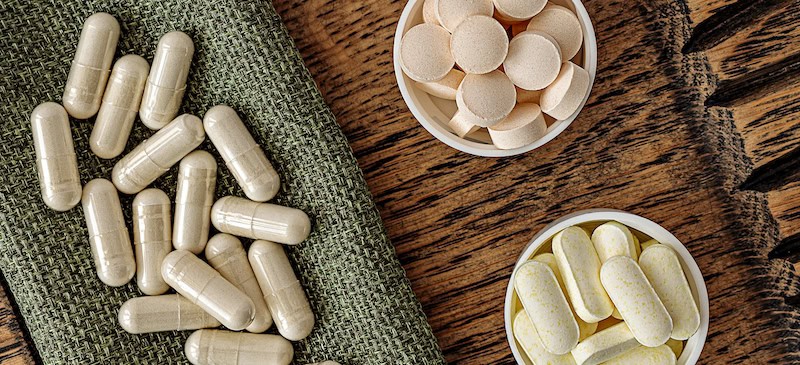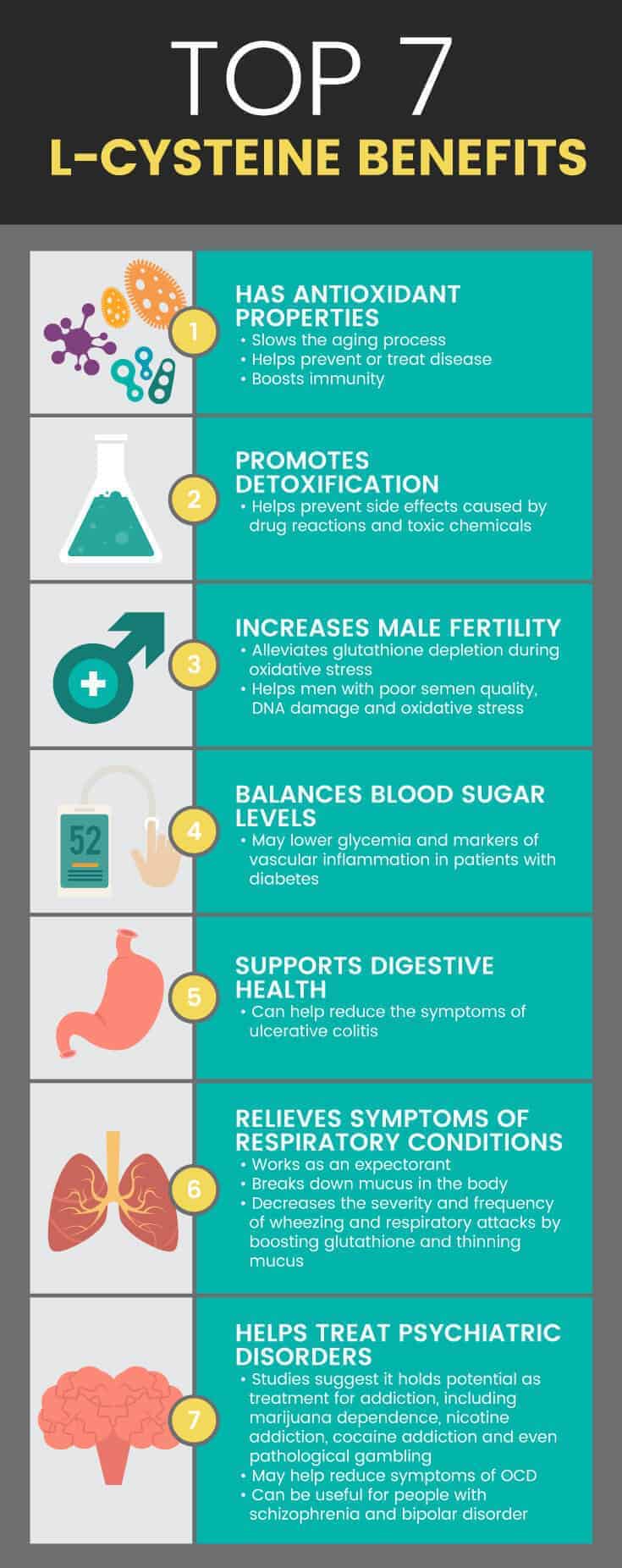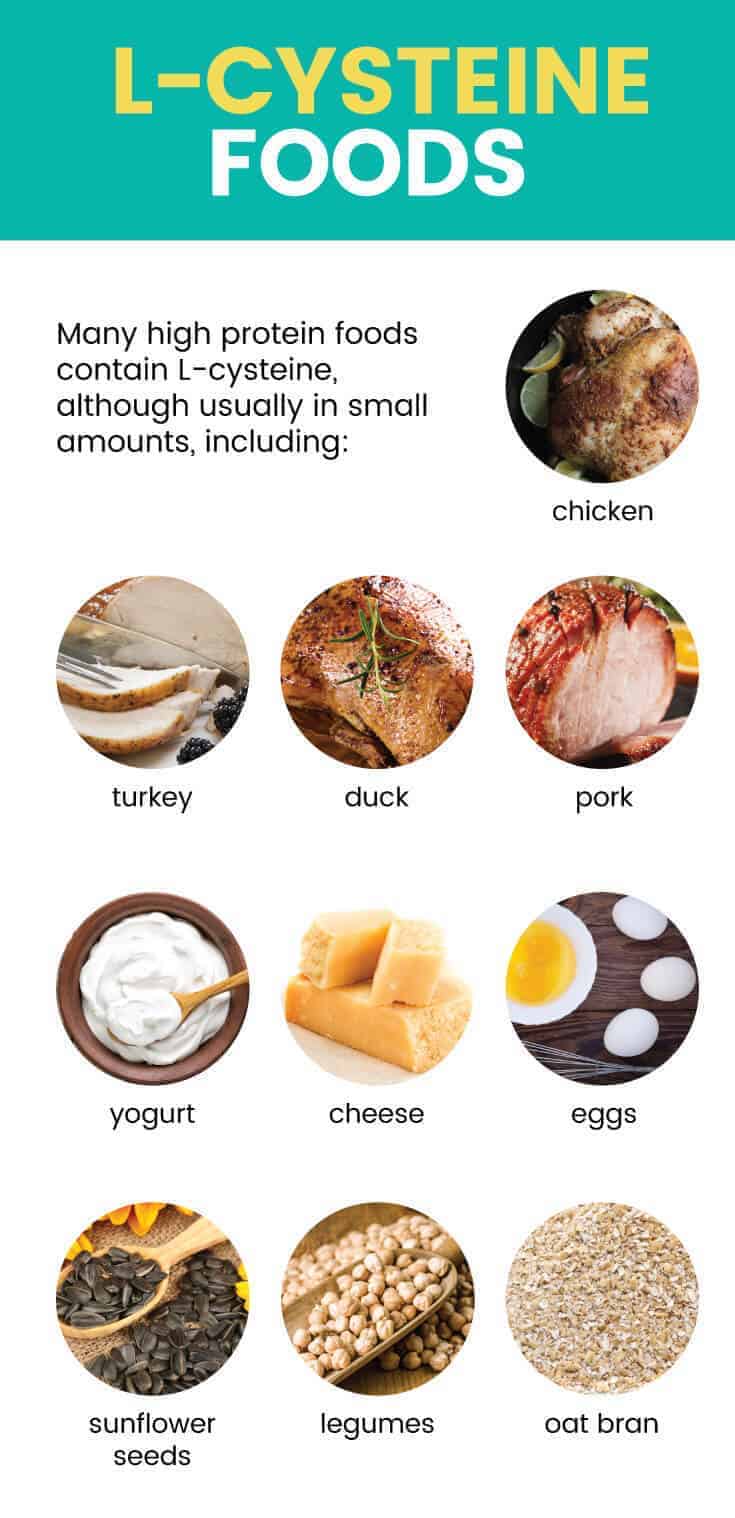This Dr. Axe content is medically reviewed or fact checked to ensure factually accurate information.
With strict editorial sourcing guidelines, we only link to academic research institutions, reputable media sites and, when research is available, medically peer-reviewed studies. Note that the numbers in parentheses (1, 2, etc.) are clickable links to these studies.
The information in our articles is NOT intended to replace a one-on-one relationship with a qualified health care professional and is not intended as medical advice.
This article is based on scientific evidence, written by experts and fact checked by our trained editorial staff. Note that the numbers in parentheses (1, 2, etc.) are clickable links to medically peer-reviewed studies.
Our team includes licensed nutritionists and dietitians, certified health education specialists, as well as certified strength and conditioning specialists, personal trainers and corrective exercise specialists. Our team aims to be not only thorough with its research, but also objective and unbiased.
The information in our articles is NOT intended to replace a one-on-one relationship with a qualified health care professional and is not intended as medical advice.
L-Cysteine: Antioxidant Amino Acid that Boosts Lung and Brain Function
June 23, 2025

L-cysteine is used therapeutically and nutritionally to improve health. More specifically, it’s a basic building block of glutathione, which has been coined “the mother of all antioxidants.”
L-cysteine supplementation, also known as N-acetyl-L-cysteine (NAC), is valued for its ability to increase glutathione levels in the body, which is extremely important for lung function, brain function and liver detoxification. Because a number of health conditions deplete your glutathione levels, you need L-cysteine to make more within your brain and body tissues.
L-cysteine is also valued for its ability to break up mucus, thereby making it easier to cough up phlegm that’s caused by respiratory and pulmonary conditions. Plus, L-cysteine is involved in regulating glutamate levels, influencing the neurons in the central nervous system.
In a nutshell, we all need enough L-cysteine in order to properly fight oxidative stress and conditions affecting the brain and lungs. It is made in small amounts by the human body, and you can also get L-cysteine from high-protein foods and supplementation.
What is L-cysteine?
L-cysteine is classified as a “semi-essential” amino acid because it can be made in small amounts by the human body, but many people can still benefit from consuming more cysteine from their diets or supplements because of its numerous health benefits. The human body can usually manufacture L-cysteine from the amino acids serine and methionine, but you need enough folate, vitamin B6 and vitamin B12 for that to be possible.
Along with two other amino acids, glutamine and glycine, L-cysteine is needed to make glutathione, the master antioxidant that’s crucial for your health. L-cysteine is usually the amino acid that’s in shortest supply for making glutamine, so it’s important that you get enough of this amino acid, even though it’s not considered essential.
Although L-cysteine is a minor scavenger of oxidative stress, its most important role is reviving glutathione, one of the most powerful antioxidants in the body. Longevity researchers believe that glutathione is so pivotal to your health that the level of this antioxidant in your cells may be a predictor for how long you will live.
It’s the body’s most important antioxidant because it is within the cells, making it essential for maintaining a healthy immune system and fighting cellular damage.
Health benefits
1. Has antioxidant properties
L-cysteine works as a scavenger of free radicals that cause cellular damage through oxidative stress, and it improves antioxidant capacity through the preservation of glutathione. This is the most well-known L-cysteine benefit because it can slow down the aging process and help prevent or treat a number of serious health conditions.
This also means that by boosting your levels of glutathione, L-cysteine supports immune function. Research has even suggested that immunological functions in diseases that are associated with a cysteine and glutathione deficiency may be significantly enhanced and potentially restored by L-cysteine supplementation.
There have been studies involving HIV patients that showed L-cysteine’s ability to boost your immune system.
One study conducted in Europe showed that a formulation including NAC, bovine colostrum, omega-3 fatty acids, and a combination of vitamins and minerals slowed down the decline of immune cells. Another study showed that by replenishing glutathione levels, L-cysteine appears to have a beneficial impact on the immune function of people living with HIV.
L-cysteine supplementation can also improve immune function in postmenopausal women, as indicated by a 2008 study published in Free Radical Biology and Medicine. The study found that a short period of NAC supply, such as two to four months, may lead to prolonged strengthening of immune defense in postmenopausal women.
Researchers concluded that NAC supplementation can contribute to the maintenance of good health and quality of life in postmenopausal women by decreasing the probability of immune system-related diseases (such as infection) as they age.
2. Promotes detoxification
L-cysteine can be used to help prevent side effects caused by drug reactions and toxic chemicals. According to research published in Alternative Medicine Review, cysteine plays a pivotal role in the detoxification mechanisms in the body.
Toxic metals have pro-oxidative effects, and they deplete glutathione levels, so L-cysteine supplements help restore those levels so you can properly detoxify toxins.
Because L-cysteine helps the body detoxify dangerous toxins and chemicals, it’s common for doctors to give intravenous NAC to people who are dealing with acetaminophen overdose in order to prevent or reduce liver and kidney damage. Drug-induced acute liver failure is a fatal disease that’s caused by the toxic metabolite N-acetyl-p-benzoquinone-imine that leads to glutathione depletion.
When overdose patients are treated with NAC, this allows for a significant increase in glutathione activity.
3. May enhance fertility
Because L-cysteine is supplemented to alleviate glutathione depletion during oxidative stress, it’s effective as a treatment of impotence in men who may have poor semen quality, DNA damage and oxidative stress.
A 2016 study published in the International Journal of Fertility and Sterility found that NAC can serve as an effective treatment for male infertility from clinical varicocele, which is when veins become enlarged inside the scrotum. The results of the study showed that sperm concentration improved with the use of NAC.
Researchers found that the percentage of clinical pregnancy in the NAC group was 33 percent compared to 10 percent for the control group.
As for women, a randomized, double‑blind, placebo‑controlled clinical trial involving 150 women (aged 18-39) with clomiphene-resistant PCOS found that adding NAC (1.2 grams/day for five days starting on day three of the cycle) to clomiphene citrate significantly increased both ovulation and pregnancy rates.

4. Balances blood sugar levels
L-cysteine is beneficial in helping support the body’s natural ability to manage and regulate normal blood sugar levels.
A human clinical trial investigated the effects of L-cysteine (in the form of NAC) combined with glycine on blood sugar regulation in adults with uncontrolled type 2 diabetes. In this study, 12 participants received oral supplementation of cysteine along with glycine daily for 14 days.
The researchers observed a significant increase in glutathione (GSH) synthesis (approximately 85 percent) and a 64 percent rise in total GSH levels in red blood cells. Additionally, there was a notable reduction in oxidative stress markers.
While the study focused on enhancing antioxidant capacity, these improvements in redox balance are strongly linked to better insulin sensitivity and glucose regulation. This study supports the role of L-cysteine in helping balance blood sugar levels through its impact on oxidative stress and glutathione production.
5. Supports digestive health
L-cysteine improves the body’s digestive capacity because of its ability to slow the aging process. As people age, digestive issues like low stomach acid and gastroenteritis become more prominent. This can be due to the presence of free radicals in the body.
Studies have suggested that L-cysteine supplementation can help reduce the symptoms of ulcerative colitis, an inflammatory bowel disease that causes long-lasting inflammation and sores in the digestive tract. Researchers found that a combined therapy of NAC and mesalamine, a conventional medication, produced a clinical improvement of ulcerative colitis symptoms, which is due to a decrease of chemokines that attract white blood cells and produce free radicals.
NAC was also found to be safe and well-tolerated.
6. Helps relieve symptoms of respiratory conditions
NAC works as an expectorant, and it can be used to break down mucus in the body. It helps decrease the severity and frequency of wheezing and respiratory attacks by boosting glutathione and thinning mucus that builds up in the bronchial tubes.
This can be helpful when you are suffering from allergy symptoms or you have a respiratory condition like bronchitis or chronic obstructive pulmonary disease (COPD).
Research published in the International Journal of Chronic Obstructive Pulmonary Disease suggested that L-cysteine supplements can be used to decrease the oxidant burden and inflammation found in patients with COPD, a condition that involves an abnormal inflammatory response in the lungs and restricted airflow that makes it difficult to breathe. NAC has been used by patients to reduce COPD symptoms, exacerbations and the accelerated decline of lung function.
7. Helps treat psychiatric disorders
More and more promising research has linked the use of NAC as a treatment of psychiatric illnesses. According to a review published in the Journal of Psychiatry and Neuroscience, for example, many of the disorders that may benefit from taking NAC have limited treatment options or suboptimal outcomes with current treatments.
Studies have suggested that NAC has potential as a treatment for addiction, including marijuana dependence, nicotine addiction, cocaine addiction and even pathological gambling. A case report found, for instance, that NAC can be used to reduce the symptoms of obsessive-compulsive disorder by improving patients’ control of compulsive washing and obsessional triggers.
Studies have also found that NAC can be useful for people with schizophrenia and manic depression. This is due to the antioxidant activity of NAC, as a growing body of literature suggests that these psychiatric disorders are due in large part to oxidative stress and the dysfunction of glutamate metabolism.
Glutamate is the most important transmitter for normal brain function, but excessive glutamate may cause toxic damage to the brain. L-cysteine is able to help modulate glutamate levels, thereby helping prevent or treat brain disorders like schizophrenia.
Preliminary studies also show that L-cysteine may be used in preventing or treating the following conditions:
- acne
- angina (restricted blood flow to the heart)
- asthma
- emphysema
- colon cancer
- lung cancer
Foods
Many high-protein foods contain L-cysteine, although usually in small amounts. These foods include:
- chicken
- turkey
- duck
- pork
- yogurt
- cheese
- eggs
- sunflower seeds
- legumes
- oat bran
Your body manufactures L-cysteine from the amino acids serine and methionine, but for that to be possible, you need adequate amounts of folate, vitamin B6 and vitamin B12 foods. You can get these vitamins from beans (like chickpeas and pinto beans), lentils, spinach, avocado, bananas, wild-caught salmon and tuna, and liver.

Supplements and dosage
NAC is the form of L-cystine that’s found in nutritional supplements, and it’s been proposed by researchers as a treatment for several illnesses. NAC is used to replenish the intracellular glutathione supply and prevent oxidative damage. It’s also used to inhibit the production of inflammatory cytokines that lead to infection or respiratory conditions.
The following forms of L-cysteine are available:
- NAC aerosol spray. NAC aerosol spray is used for the treatment of respiratory conditions or pulmonary disease. It must be prescribed by a doctor.
- Cysteine/NAC tablets or capsules. Daily NAC tablets or capsules can be used for antioxidant protection and general health.
- The standard dosage is typically 500 milligrams per day.
- To treat a respiratory illness, adults can take 200-600 milligrams, twice daily.
- For COPD, the suggested dose is 600 milligrams, twice daily.
- NAC liquid solution
- NAC topical solution
- L-cysteine powder
Taking a multivitamin or B-complex supplement will ensure that you get the B vitamins that you need when taking NAC.
Risks, side effects and interactions
Very high doses (more than seven grams) of L-cystine can be toxic to human cells, so it’s important to keep track of your doses and take NAC under the guidance of your healthcare provider, especially if you take it to treat chronic conditions.
NAC supplements should not be taken if you already use medications that suppress the immune system, oxiconazole (an antifungal medication), nitroglycerin and isosorbide (medications for high blood pressure), or activated charcoal.
Some people may experience side effects from L-cysteine supplements, including dry mouth, headache, dizziness, nausea and vomiting. If you experience any of these symptoms, consult your healthcare provider about changing your dosage or the possibility of allergies.
Frequently asked questions
What is L-cysteine used for?
L-cysteine is a semi-essential amino acid used by the body to produce glutathione, a powerful antioxidant that helps protect cells from damage. It’s commonly used to support liver detoxification, immune function, respiratory health (as a mucolytic to break down mucus), and skin, hair and nail health.
In supplements and medicine, it’s sometimes used to treat acetaminophen overdose and help manage chronic bronchitis.
What foods are high in cysteine?
Cysteine is found in high-protein foods, especially:
- Poultry (chicken, turkey)
- Eggs
- Beef and pork
- Dairy products (milk, yogurt, cheese)
- Legumes (lentils, chickpeas, soy)
- Nuts and seeds
- Whole grains (oats, wheat germ)
Cruciferous vegetables like broccoli and Brussels sprouts also support cysteine production through their sulfur content.
What are the symptoms of low cysteine levels?
Low cysteine can lead to:
- Fatigue
- Weakened immune system
- Slower wound healing
- Poor skin, hair, or nail health
- Increased oxidative stress
- Liver detoxification issues
In severe cases, it may impair glutathione synthesis, reducing the body’s ability to handle toxins.
Is cysteine good for your liver?
Yes. Cysteine, especially in the form of N-acetylcysteine (NAC), is highly beneficial for the liver. It boosts glutathione production, which supports the liver’s detoxification processes and protects against damage from toxins, alcohol and medications like acetaminophen.
Can I take L-cysteine every day?
Yes, it is generally safe to take L-cysteine or NAC daily at recommended doses (usually 600-1,200 mg/day for NAC), but long-term use should be monitored by a healthcare provider, especially if you have kidney or liver conditions. Always follow dosage guidelines to avoid potential side effects.
Is L-cysteine human hair?
Yes, L-cysteine can be derived from human hair, which is rich in keratin and cysteine. This form has been used in the production of some supplements and food additives (like dough conditioners), though many manufacturers now use vegetable-based or synthetic sources due to ethical and dietary preferences.
What are the side effects of taking L-cysteine?
L-cysteine and NAC are generally well-tolerated, but possible side effects include:
- Nausea
- Vomiting
- Diarrhea
- Headache
- Abdominal pain
- Allergic reactions (rare)
High doses may impact blood pressure or kidney function in sensitive individuals, so medical supervision is advised for long-term or high-dose use.
Final thoughts
- L-cysteine is valued for its ability to increase glutathione levels in the body, the “mother of antioxidants.” It works as an antioxidant, and it helps boost lung and brain function. It also promotes liver detoxification.
- L-cysteine is usually the amino acid that’s in shortest supply for making glutamine, so it’s important that you get enough of this amino acid, even though it’s not considered essential.
- Cysteine can be found in high-protein foods like chicken, turkey, beef, duck, yogurt and egg yolks.
- NAC is the form of L-cystine that is found in nutritional supplements, and it has been proposed by researchers as a treatment for several illnesses.
- Very high doses of NAC can be toxic to human cells. Normal doses of NAC (around 500-600 milligrams daily) are generally safe, but side effects may include nausea, vomiting and headache.



